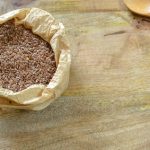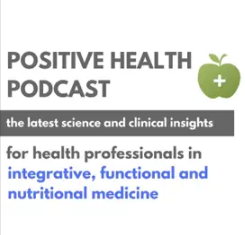
SIBO – a major cause of IBS
March 10, 2025
Phytoestrogens: Natural Support for Hormone Balance
March 14, 2025Measuring cortisol levels and what it means – the DUTCH test

Cortisol is known as the stress hormone but several ways of thinking have changed in the past ten years when it comes to cortisol and adrenal function. Functional medicine is at the forefront of health science and as such, is constantly evolving.
Adrenal fatigue is not an accurate term
Adrenal fatigue was used to describe a state where the body had over-produced stress hormone for such a long time that the adrenal glands became somehow unable to keep up with the demand. This could have been a plausible theory; something similar happens to the pancreas after years of eating too much sugar. The glands producing insulin become exhausted and diabetes occurs. However, we now know that this does not actually happen with the adrenal gland. What we thought of as adrenal fatigue or burn out, is still very much related to the fatigue and stress that we feel, but it is not the gland that is failing.
Stress interrupts the signals from the brain to the adrenal glands
Disrupted by physical and metabolic stress, the brain signals fail to tell the adrenal gland to produce enough cortisol1. Low cortisol levels contribute to fatigue, low motivation and low mood and a reduced metabolic rate – or how the body is running.
Thus the answer lies in reducing these stress signals to the brain. These signals can be emotional, psychological or physical stressors such as:
– Inflammatory processes will tell the brain that there is stress in the body
– Poor blood sugar control is a metabolic stress on the body
– A disrupted circadian rhythm pulls the body out of sync causing physical stress
– Perceived stress i.e. emotional, psychological – what we all know as ‘stress’ also plays a role
What we see measured on a DUTCH test – and some cautions
When free cortisol levels are low on the DUTCH test, this means there is less active cortisol available in the body to function. This will most certainly feel like a low energy state. The DUTCH test also measures inactive cortisone and if the body is excessively deactivating cortisol, this can be modulated by herbs such as licorice. Licorice acts on an enzyme which converts cortisone to cortisol, but in excess this can have dangerous side effects including high blood pressure and a major electrolyte imbalance.
The DUTCH test also measures total cortisol metabolites, which gives much more information that just free cortisol measured on other tests. This measures how much total cortisol you make in a day and how much you are breaking down and losing from the body. There are several reasons why the adrenal glands might be producing plenty of cortisol, but actually losing quite a lot of it. This includes thyroid issues, being overweight and metabolic issues. In this instance, encouraging the adrenal gland to produce more cortisol may not be effective and could be harmful.
How to address cortisol issues
The term ‘adrenal adaptogens’ is used for a number of helpful herbs and nutraceuticals. As the name suggests that these allow the adrenal glands to recover. In actual fact, they are still helpful, just not in the way that we thought. Herbs like ashwagandha and rhodiola are more likely to be working on the brain-stress response rather than adrenal fatigue.
Interventions to reduce perceived stress will also still be helpful such as mindfulness and meditation2. Looking at the root cause however is also going to be key, including balancing the circadian rhythm, and addressing inflammation or blood sugar imbalances that are causing a physiological stress.
To find out more about how the DUTCH test and cortisol testing can help you, please get in touch.
Book Now or Make an Enquiry
References


